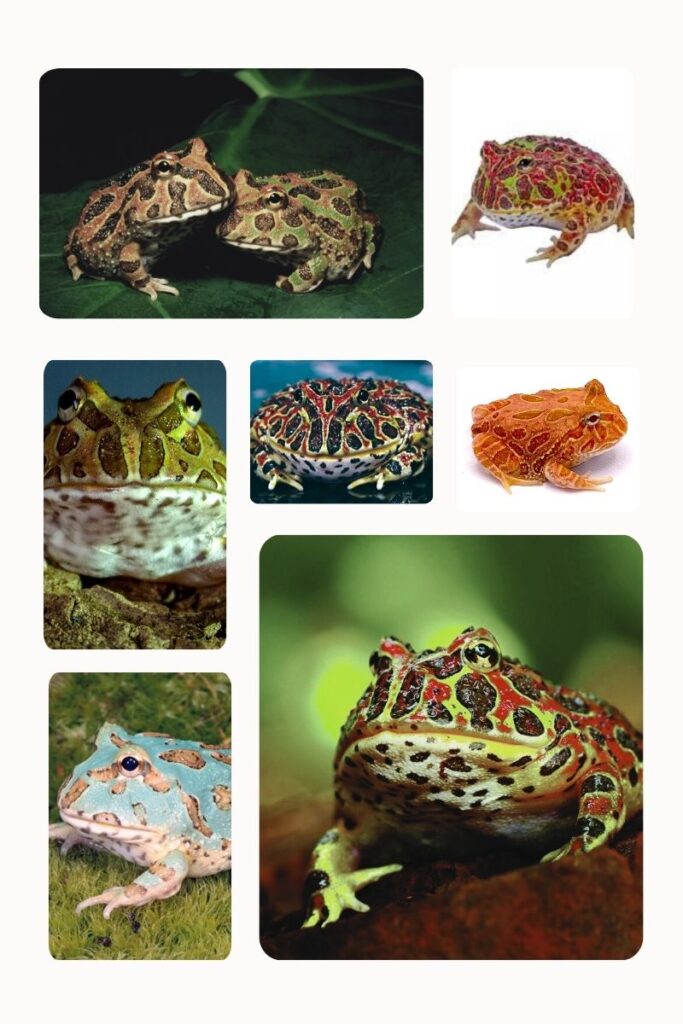🐸 Pacman Frog Growth Stages Explained
From Tiny Tadpole to Chubby Adult: A Complete Development Guide
Pacman Frog Growth Stages - At a Glance
Pacman frogs grow rapidly, transitioning from aquatic tadpoles to full-grown terrestrial adults within a few months. The four key stages are: egg, tadpole, juvenile, and adult. Each phase has specific care requirements for feeding, habitat, and hydration. Learn how to support your frog’s growth every step of the way.
Understanding the growth stages of a Pacman frog is essential for providing the right care at the right time. These fascinating amphibians go through dramatic changes—from tiny black tadpoles to hefty land-dwelling hunters.
In this guide, we’ll cover:
All major Pacman frog growth stages
How long each stage lasts
What to expect physically and behaviorally
Care tips for each stage
How to monitor healthy development
Stage 1: Egg (0–5 Days)
What Happens:
Fertilized eggs are laid in water and hatch in 3–5 days
Tiny tadpoles emerge, fully aquatic
Care Tips:
Clean, dechlorinated water
Stable temps around 75–80°F
No substrate or filtration—just shallow water
Gentle aeration is optional but helpful
This stage is usually seen by breeders—not typical for most pet owners.
Stage 2: Tadpole (5–21 Days)
What Happens:
Tadpoles grow quickly and begin to develop back legs around 10–14 days
Front legs emerge shortly after
Tail begins to shrink as they absorb it internally
Metamorphosis is complete within 3 weeks
Care Tips:
Feed boiled lettuce, spirulina flakes, or tadpole pellets
Gradually lower water level and add floating cork bark as they morph
Maintain warm, clean water to avoid disease
Transition to moist land once legs are fully developed
👉 Pacman Frog Feeding Schedule by Age

Stage 3: Juvenile Froglet (3 Weeks–6 Months)
What Happens:
Now fully terrestrial
Rapid growth in size—can triple in a few months
Develop stronger appetite and feeding response
Begin showing early signs of sex (males may croak)
Care Tips:
Feed daily with small live insects
Use calcium and vitamin D3 powder 3x/week
Keep humidity 60–80% and temps 75–85°F
Use moist coco fiber or sphagnum moss as substrate
Mist daily and provide shallow water dish
👉 What Do Pacman Frogs Eat? Complete Feeding Guide
👉 Pacman Frog Tank Setup for Beginners
Stage 4: Adult Pacman Frog (6 Months–10+ Years)
What Happens:
Growth slows, and adult size is reached around 10–12 months
Males grow to 3–4 inches; females up to 5–7 inches
Appetite decreases slightly; feeding slows to 1–2x/week
Fully developed coloring and vocalizations (especially males)
🛠️ Care Tips:
Feed large insects, earthworms, and occasional pinky mice
Avoid overfeeding—obesity is a common issue
Continue supplementing with calcium/D3 weekly
Minimize handling to avoid stress
Spot clean tank regularly and monitor for dehydration
👉 How Long Can Pacman Frogs Go Without Food?
👉 Pacman Frog Lifespan: How Long Do They Live?
Growth Timeline Summary
| Stage | Age Range | Key Traits |
|---|---|---|
| Egg | 0–5 days | Aquatic, translucent eggs |
| Tadpole | 5–21 days | Fully aquatic, no legs to full limbs |
| Juvenile Froglet | 3 wks–6 months | Terrestrial, rapid growth, strong appetite |
| Adult Frog | 6 mo.–10+ years | Fully developed, slow growth, less frequent feeding |
Signs of Healthy Growth
- Steady weight gain and size increase
- Regular, well-formed poops
- Strong feeding response
- Active at night or when misted
- Skin appears moist and smooth
Growth Problems to Watch For
| Issue | Possible Cause |
|---|---|
| Stunted growth | Undereating, cold temps, poor lighting |
| Refusing food | Stress, impaction, illness |
| Dehydration | Low humidity or poor hydration setup |
| Unusual coloring | Shedding, stress, or substrate irritation |
Final Thoughts
Pacman frogs may be popular pets, but their true roots are in the lush, rain-fed soils of South America. Understanding their wild lifestyle helps you become a better, more ethical keeper—and a stronger advocate for amphibian conservation worldwide.
FAQ: Pacman Frog Growth
Q: How fast do Pacman frogs grow?
A: Very fast in the first 6 months—tripling or quadrupling in size. Growth slows significantly after the 1-year mark.
Q: When can you tell the gender of a Pacman frog?
A: Around 6–10 months. Males are smaller, may croak, and develop dark throats. Females are larger and quieter.
